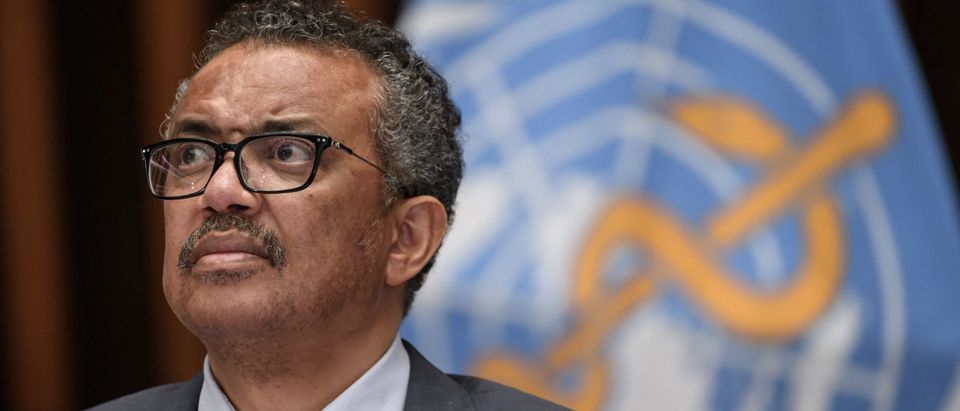The World Health Organization (WHO) recently announced that, through its investigation in China into the origins of the COVID-19 pandemic, it determined it was “extremely unlikely” that COVID-19 originated from a lab environment.
The WHO made the announcement after visiting the Wuhan Institute of Virology (WIV), which has been at the center of the “lab-leak” theory which posits that COVID-19 may have originated from a lab after being genetically modified as a part of “gain-of-function research.” Later the same week, the WHO backtracked, saying that “all possibilities” were still on the table regarding the origin of the virus.
‘A Screeching U Turn’: Once Dismissive, Now The WHO Says Lab Leak Hypothesis Still In Play https://t.co/3EXM3DBrJd
— Daily Caller (@DailyCaller) February 12, 2021
The conflicts of interest casting a shadow over the investigation have been well documented. Investigative team member Peter Daszak was responsible for funneling National Institutes of Health grant money to the WIV. House Republicans concluded that the WHO enabled China’s coverup of the early stages of the pandemic. The WHO has routinely praised China for its “transparency” in dealing with the pandemic, a notion which is harshly contradicted by reality.
“They [the WHO] are not acting very seriously in my opinion,” University of Innsbruck researcher Rossana Segreto told the Daily Caller. “I was not surprised at all about the conclusions of the WHO. Having Daszak on board and deciding to visit a few labs in Wuhan only after pressure from the media was not very promising.”
Segreto wasn’t the only expert to express skepticism about the WHO investigation.
Prior to the WHO’s announcement of their preliminary findings, Stanford University’s Dr. David Relman told the Wall Street Journal that a lack of transparency would cloud the results of their investigation: “Based on the scant information that has been shared publicly about the WHO investigation, it doesn’t appear that WHO has adequately represented the range of views and perspectives of key stakeholders or incorporated all needed forms of expertise.”
Kevin McCairn, retired Principal Investigator at the Korea Brain Research Institute, also cited Daszak’s presence as a matter of concern. “I stand by the assertion that the WHO visit that includes Peter Daszak of EcoHealth Alliance is a highly compromised and potentially damaging affair,” he told the Daily Caller.
Karl and Dan Sirotkin, who published a peer-reviewed paper in Aug. 2020 arguing for the viability of the lab-leak hypothesis, panned the WHO for its past reliance on Chinese information. “The WHO has demonstrated an inability to put the science in front of what the CCP has told them to say since this all started… this is just the continuation of that,” they said. (RELATED: Cop Accused Of Spying For Chinese Government To Be Released On $2 Million Bond)
After the WHO’s apparent flip-flop on whether or not they’d continue to investigate a lab-leak origin, Rutgers University professor of chemical biology Richard H. Ebright told the Daily Caller News Foundation (DCNF) that “The WHO mission was a charade. It has no credibility. Its members were willing–and, in at least one case, eager–participants in disinformation.”
Virologist Dr. Angela Rasmussen, a frequent critic of the lab-leak hypothesis, said on Twitter that the WHO team wasn’t properly qualified to rule it out. “The WHO team is there at the pleasure of the Chinese government and can’t conduct the type of forensic investigation that so many demand. They’re also not detectives by profession or hobby. They are a bunch of microbiologists and aren’t qualified to conduct an audit of WIV,” she tweeted.
The WHO team is there at the pleasure of the Chinese government and can’t conduct the type of forensic investigation that so many demand. They’re also not detectives by profession or hobby. They are a bunch of microbiologists and aren’t qualified to conduct an audit of WIV.
— Dr. Angela Rasmussen (@angie_rasmussen) February 9, 2021
The WHO floated multiple other theories, including that the virus came from a natural zoonotic origin, and the idea it came from a frozen food source, but said it couldn’t conclusively affirm or rule out any of them yet. The final report from the investigation is expected to be released in the coming days, a WHO spokesperson told the DCNF’s Andrew Kerr.












